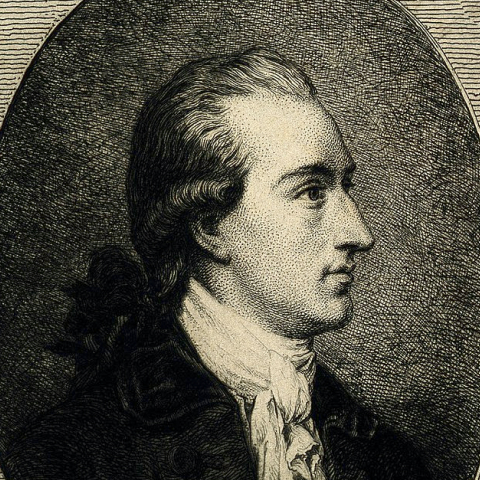Johann Wolfgang von Goethe's IQ Score Is 205
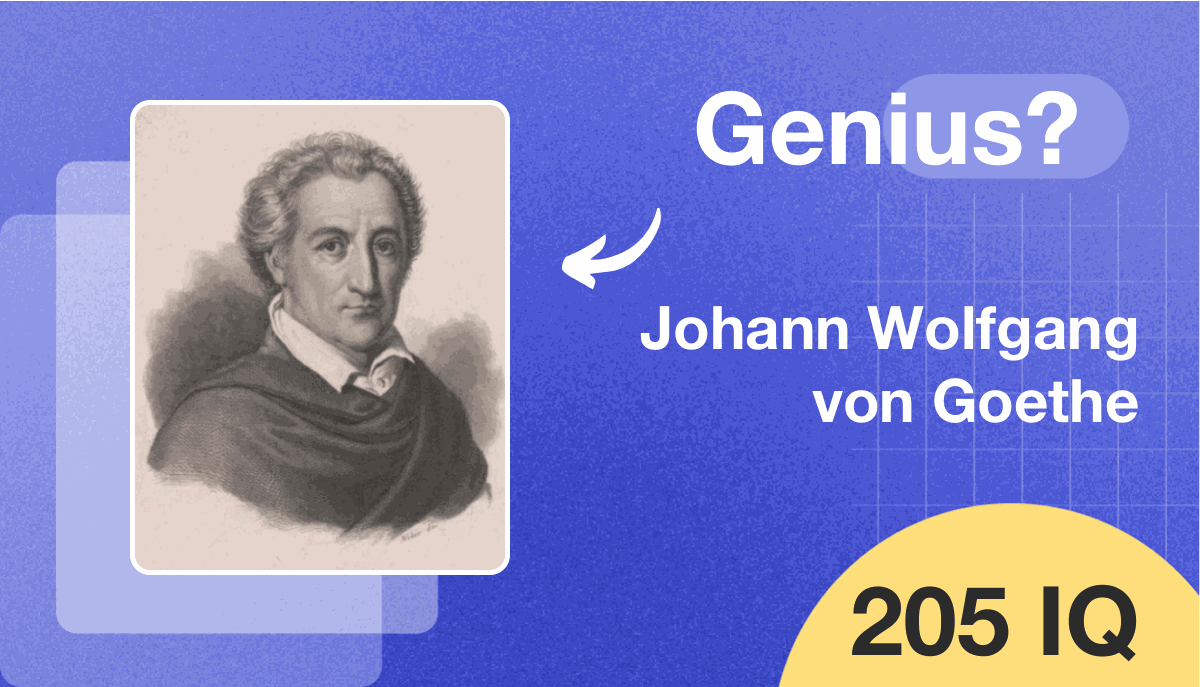
Johann Wolfgang von Goethe, an iconic figure in German literature, is celebrated for his wide-ranging contributions to poetry, drama, and science. Born in 1749, Goethe's works, like the famous "Faust," explore deep themes of human nature, emotion, and society. His influence goes beyond literature, touching philosophical and scientific discussions, which highlights his critical thinking and creativity. With an estimated IQ of 205, Goethe's intellectual legacy continues to inspire people worldwide.
Goethe's curiosity led him to challenge Isaac Newton's color theory. Unlike Newton, who used experiments and mathematics, Goethe focused on how humans perceive color. His "Theory of Colors" emphasized the experience of color, influencing fields like art and psychology. This unique perspective added depth to scientific discussions on light and color.
Goethe's impact wasn't limited to science. His novel "The Sorrows of Young Werther" became a bestseller, even admired by Napoleon, who claimed to have read it seven times. The two titans met in 1808, with Napoleon trying to persuade Goethe to move to Paris to lead a cultural Renaissance during their interactions.
Besides literature, Goethe made significant strides in various fields. He was a lawyer, a scientist, and a theater manager. His passion for natural sciences led him to study mineralogy, anatomy, and physics. His scientific works, though less known, show his diverse interests and talents across disciplines
Goethe's work extended into philosophy and cultural movements. He played a key role in Weimar Classicism and influenced the Romanticism movement. His collaboration with Friedrich Schiller in Weimar fostered a hub of intellectual and cultural activity that shaped European thought during their era.
Goethe's intellectual curiosity and creativity left a lasting mark on various fields. His works continue to be studied and celebrated for their profound insights into human nature and the world. His legacy as a seminal thinker and and writer endures, inspiring new generations of scholars and readers to this day.
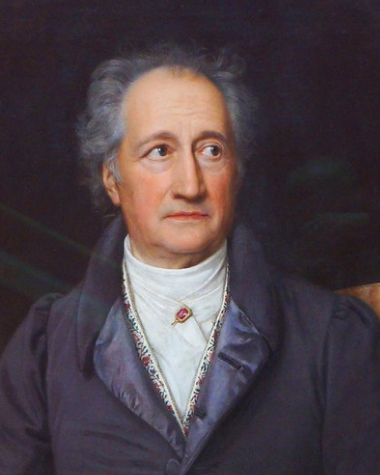

Average Confidence Level
HighWe derived Johann Wolfgang von Goethe's IQ from the following three sources: Genetic Studies of Genius, Big Think and Reader's Digest. Other sources with lower authority are provided for comparison purposes. In at least one case, we took the average of the provided scores.
 Confidence Level: High
Confidence Level: High
 Confidence Level: High
Confidence Level: High
 Confidence Level: Low
Confidence Level: Low
 Confidence Level: Low
Confidence Level: Low
 Confidence Level: High
Confidence Level: High
5 Reasons Why Johann Wolfgang von Goethe Is Considered a Genius
- Master of Literature: Goethe's literary creations, particularly 'Faust', are monumental achievements in world literature. They showcase his deep understanding of human nature and his capacity for profound philosophical thought.
- Polyglot and Scholar: Goethe mastered multiple languages and studied various subjects ranging from natural sciences to history. His efforts reflect insatiable curiosity and exceptional intellectual capacity. Some of his other hobbies included dancing, riding, and fencing.
- Theory of Colors: He published 'Theory of Colours' in 1810, critiquing Newton’s theory and offering new perspectives on color and perception. This s evidence of his innovative thinking in the realm of science.
- Cultural Impact: Goethe's thoughts and writings significantly influenced various cultural movements across Europe, including Romanticism. This demonstrated his widespread intellectual influence beyond mere literary achievements.
- Philosophical Influence: His work inspired deep philosophical discussions, influencing later thinkers and writers. His exploration of human behavior and motivation in literature provided groundbreaking insights.
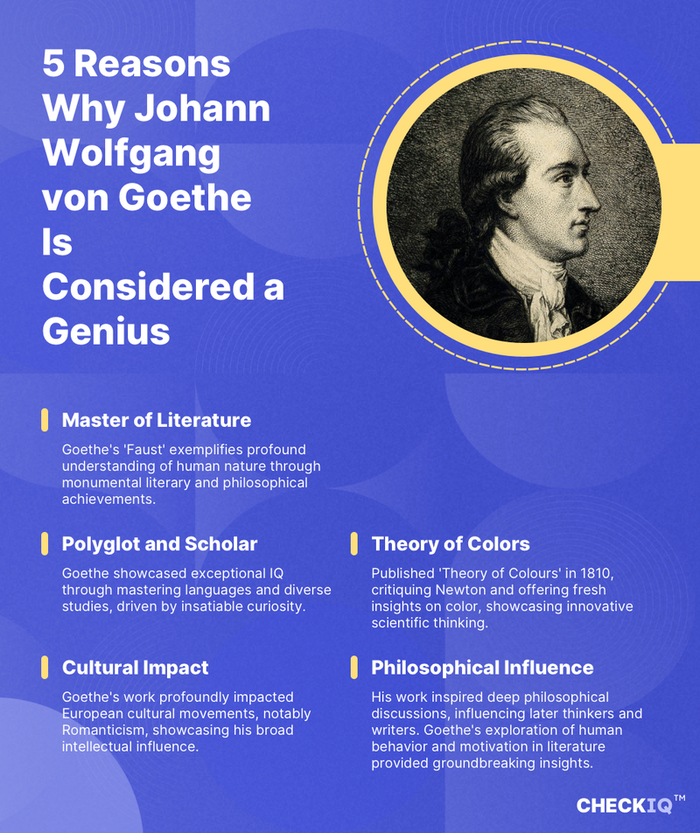
Try our accurate online IQ Test. Get your IQ score immediately.
Start IQ Test
How Does Goethe's IQ Compare to the Rest of the World?
Goethe's 205 IQ puts him well beyond the threshold of the most prestigious high IQ circles. Indeed, his score surpasses the entry requirements for societies like Mensa, Intertel, and the Triple Nine Society. Goethe's intellectual capacity reaches into territories occupied by fewer than 0.003% of the population. This level of intelligence is extraordinarily rare: membership in the Epimetheus Society, reserved for the crème de la crème with an IQ in the top 0.003%, would be a given for him.
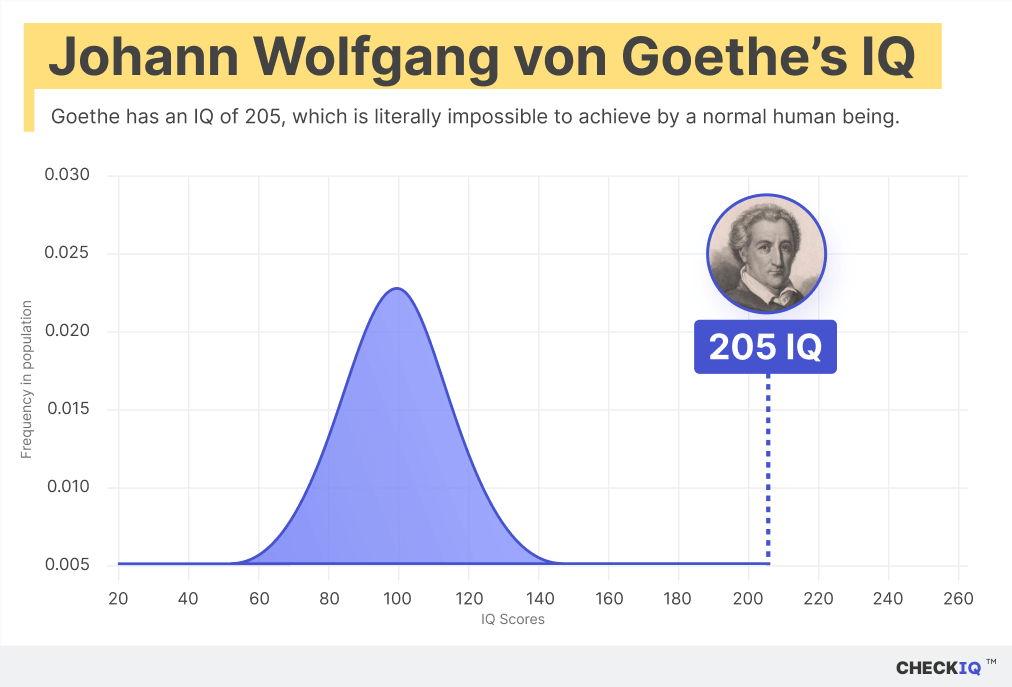
Comparing Goethe's 205 IQ to That of Other Writers
Johann Wolfgang von Goethe, with an IQ of 205, finds himself among the intellectual elite. Just slightly below Shakespeare's IQ of 210, Goethe's genius shines in both literature and science, similar to Shakespeare's unmatched contribution to English literature.
Meanwhile, Emanuel Swedenborg's IQof 187 and Voltaire's IQ of 186 both carved niches in philosophy and thought, despite coming from different cultural backgrounds. Swedenborg, a Swedish polymath, contributed extensively to theology, science, and philosophy. Voltaire, a French Enlightenment writer, is renowned for his advocacy of civil liberties and his satirical wit.
The wit and humor of Mark Twain, with an IQ of 170, brought a unique blend of wit and humor to the intellectual world. His works, including "The Adventures of Tom Sawyer" and "Adventures of Huckleberry Finn," offer profound social commentary and are celebrated for their narrative style and keen insight into human nature.
Even though Charles Dickens' IQ of 145 might seem modest in this context, his monumental contributions to literature show that IQ scores are just one measure of a person's impact. Dickens' novels, such as "A Tale of Two Cities" and "Great Expectations," profoundly influenced social reform and continue to resonate with readers worldwide.
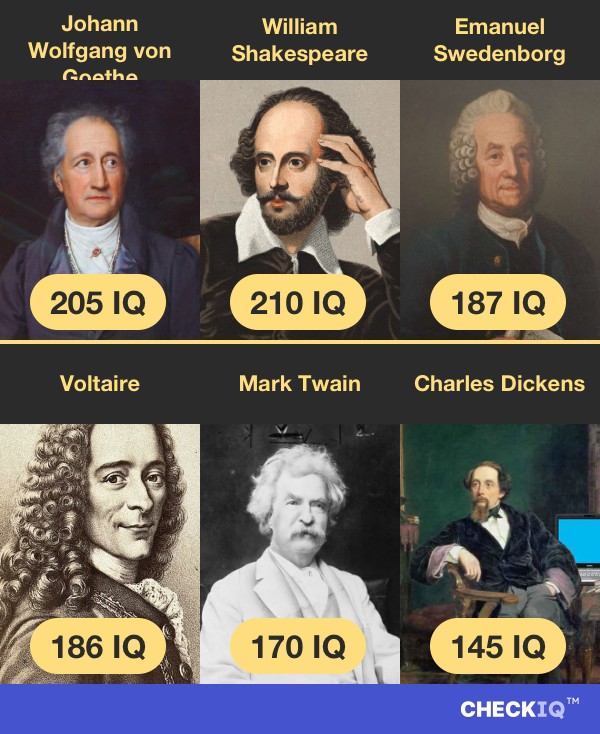
What insights do you have about Johann Wolfgang von Goethe's intelligence? Drop a comment below with your thoughts!

Discover the IQ of Other Celebrities
-
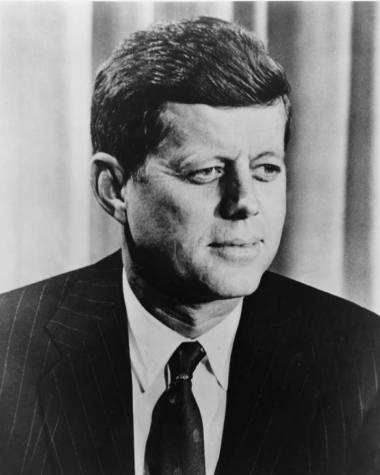 John F. Kennedy155 IQ
John F. Kennedy155 IQ -
 Paris Hilton132 IQ
Paris Hilton132 IQ -
 Marilyn Monroe165 IQ
Marilyn Monroe165 IQ -
 Kim Ung-Yong210 IQ
Kim Ung-Yong210 IQ -
 Mark Cuban138 IQ
Mark Cuban138 IQ -
 Jordan Peterson147 IQ
Jordan Peterson147 IQ

